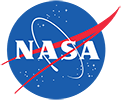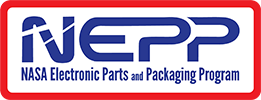NASA Electronic Parts Engineering School
The NASA Electronic Parts and Packaging Program (NEPP) is encouraging the development of a NASA
Parts Engineering Program alongside university partners Auburn University and University of Maryland, through NASA center-wide
collaborations between NASA Jet Propulsion Laboratory (JPL), Goddard Space Flight Center (GSFC), Marshall Space Flight
Center (MSFC), and Langley Research Center (LaRC). The program will address the knowledge gap in the current electronic parts
engineering workforce and will lead to increases in the number of trained professionals in the workforce, including
cultivating the next generation of Parts Engineers.
Complete program details can be found at:
NASA Electronic Parts Engineering School
Opportunity
With new developments in Electrical, Electronic, Electromechanical, and Electro-optical (EEEE)
parts, there is an ever-growing knowledge gap for incoming Parts Engineers
-
The need to address this gap has been prevalent through all NASA facilities and involved
industries
-
It is critical to tackle the lack of awareness as well as the lack of technical knowledge
-
Currently, there are no programs offering a comprehensive parts engineering focus throughout
university
and industry
Solution
Workforce Development at a national level to narrow the knowledge gap
-
Leveraging the knowledge base of the universities and industry partners will assist in filling these gaps
-
NASA will take the leadership role in developing university programs to support the aerospace, military, and industrial community
Program Goal
Parallel Workforce Development
-
Development of a curriculum of EEEE parts engineering topics at the university level
-
Share training materials currently available to NASA EEEE Parts Engineers with students
Who are Parts Engineers?
This program defines Parts Engineers as those who:
-
Conduct engineering assessments and review all EEEE parts for reliability-related performance
-
Support projects with part selection that maximizes reliability appropriate for the project life cycle while considering supply chain risks, and schedule and cost constraints
-
Oversee part procurement and work with parts manufacturers to ensure compliance with engineering requirements and business constraints
-
Establish test plans for EEEE parts, including screening and qualification test campaigns and any required failure analysis, and evaluate test results for proper disposition for space flight usage
-
Assess the capabilities of new EEEE technologies and suppliers for spaceflight use

